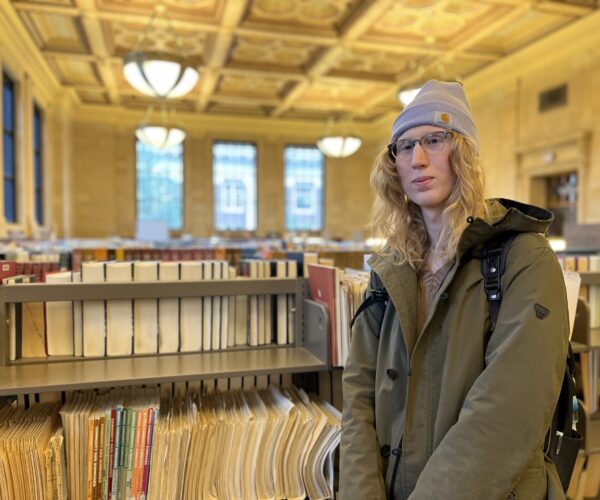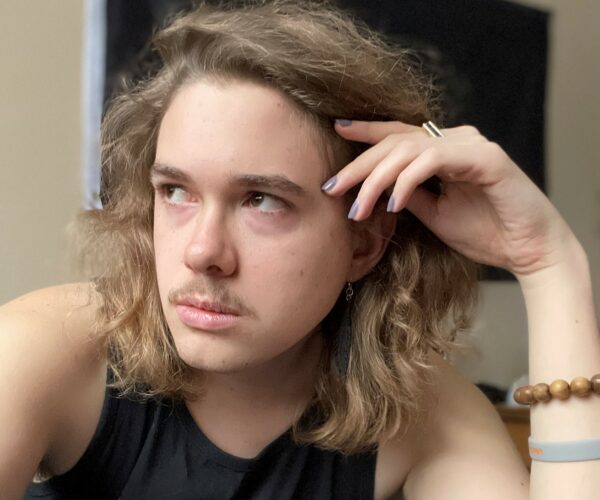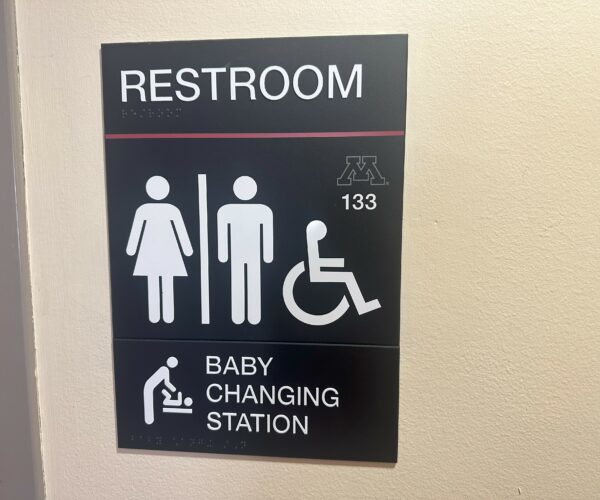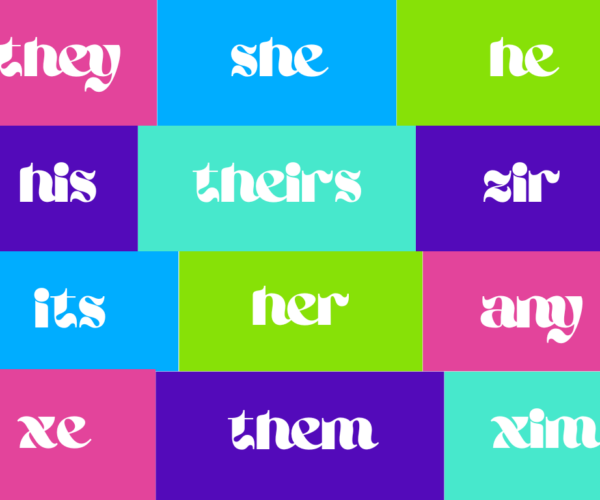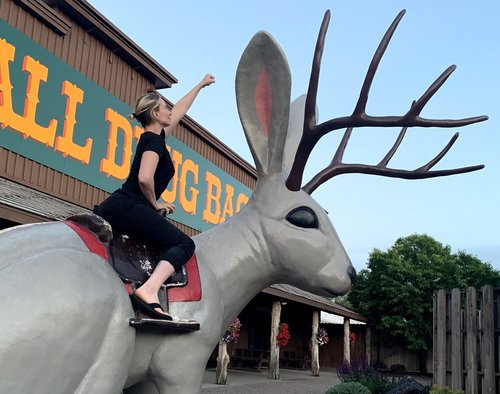By Noah Mitchell
Amid the books and role-playing games in Assistant Professor Catherine Saint-Croix’s philosophy department office, a climbing hangboard is mounted to the wall across from the desk.
Saint-Croix, whose career at the University of Minnesota has seen them go from a star undergraduate philosophy student to a valued professor, researcher and advocate for the queer community in just a few years, climbs whenever they get the chance. Climbing makes sense to Saint-Croix.
“Climbing is about solving problems that are set out for you in these neat little packages, like figuring out how to fit your body to this thing that is kind of antagonistic, and taking joy in it,” Saint-Croix said. “I think that if you’re a queer person you have had to do that.”
The conversation about climbing was casual and incidental, yet it was one example of how Saint-Croix continues a mission of speaking on both academic and personal levels about queer issues.
Saint-Croix said this popular appeal is an important part of their philosophical mission.
“There’s sort of a general theme that runs through my research, which is demystifying [philosophy] in a way that is communicable to people who maybe don’t share the same political commitments that I do. I’m very interested in, to use a horrible cliche, talking across the aisle,” Saint-Croix said.
After two years as a President’s Doctoral Fellow at the University, Saint-Croix joined the philosophy department faculty in 2020. In that time, they have published multiple papers, focusing their studies on epistemology.
Their work also addresses important parts of queer life, like the 2019 paper “‘Yep, I’m Gay’: Understanding Agential Identity” they wrote with Yale Assistant Professor of philosophy Robin Dembroff and had published in the journal Ergo. The work explores gender and sexuality in terms of agential identity, the parts of our identity that we want others to recognize.
Saint-Croix said the paper can help queer people practically understand their own identity and coming out process.
Saint-Croix’s efforts to share useful philosophical insights and help queer students extend to their honors seminar that focuses on role-playing games, like Dungeons and Dragons.
Such games provide a safe context for people to experiment with their identity, including their gender identity or sexuality, Saint-Croix said. The games also allow players to experience queerness in a “less dire” context than in the contemporary political climate.
Creating spaces that elevate and celebrate queer and femme experiences is nothing new for Saint-Croix. They have for years striven to make philosophy, a field notoriously dominated by men, more accepting of gender diversity.
Saint-Croix grew up near Milwaukee, Wisconsin and attended an all-girls Catholic high school — an experience they described as pivotal to their discovery of their identity. Without the presence of male peers, students didn’t feel as much pressure to “perform femininity” at school, Saint-Croix said, although the absence of gender diversity also created pressures against gender expressions that deviated from a feminine norm.
Saint-Croix didn’t outwardly identify as queer until beginning an undergraduate degree at the University, where they said they found the philosophy community to be one of the more gender-diverse in the country.
Saint-Croix also made an impression on the faculty.
“Professor Saint-Croix was, of course, one of the brightest and most hard-working students I had during my early years at the University of Minnesota,” assistant professor of philosophy, Roy Cook, said via email.
After undergraduate study, Saint-Croix went to the University of Michigan to pursue a doctoral degree and, in the process, helped guide significant developments in the local philosophy community there.
Saint-Croix participated in Athena in Action, a workshop focused on improving gender diversity in the field of philosophy, where they met Yale’s Dembroff, a now-frequent collaborator and friend.
Saint-Croix also co-founded the Michigan chapter of Minorities and Philosophy. The organization brought in guest speakers to educate its members and also organized the COMPASS Workshop, a weekend of discussion, networking and mentoring for diverse students interested in pursuing graduate work in philosophy.
Saint-Croix returned to Minnesota via the President’s Postdoctoral Fellow program in 2018 and ultimately joined the faculty in 2020.
Now that Saint-Croix is a peer, their former mentor Cook notes the two have become close friends.
“And in a certain sense the mentor-mentee tables have turned: As my own work delves more and more into feminist philosophy and other diversity-adjacent areas of philosophy, they have been a wonderful source of encouragement and advice, and a great sounding board for some of my wackier ideas,” Cook said via email.
Saint-Croix has lived in the Upper Midwest their entire life and appreciates it as a relative oasis for queer people who are under attack by many state legislatures elsewhere in the country. As a professor, Saint-Croix makes a point of sharing diverse perspectives with rural students who may not have been exposed to them before.
“I see it as one of the more valuable things I can do, to welcome those students in. Look, you’ve heard some scary things, I know, but nobody’s here to call you out or make you feel bad,” Saint-Croix said. “This is a place to open up, to explore, and to understand new people and ways of being.”
